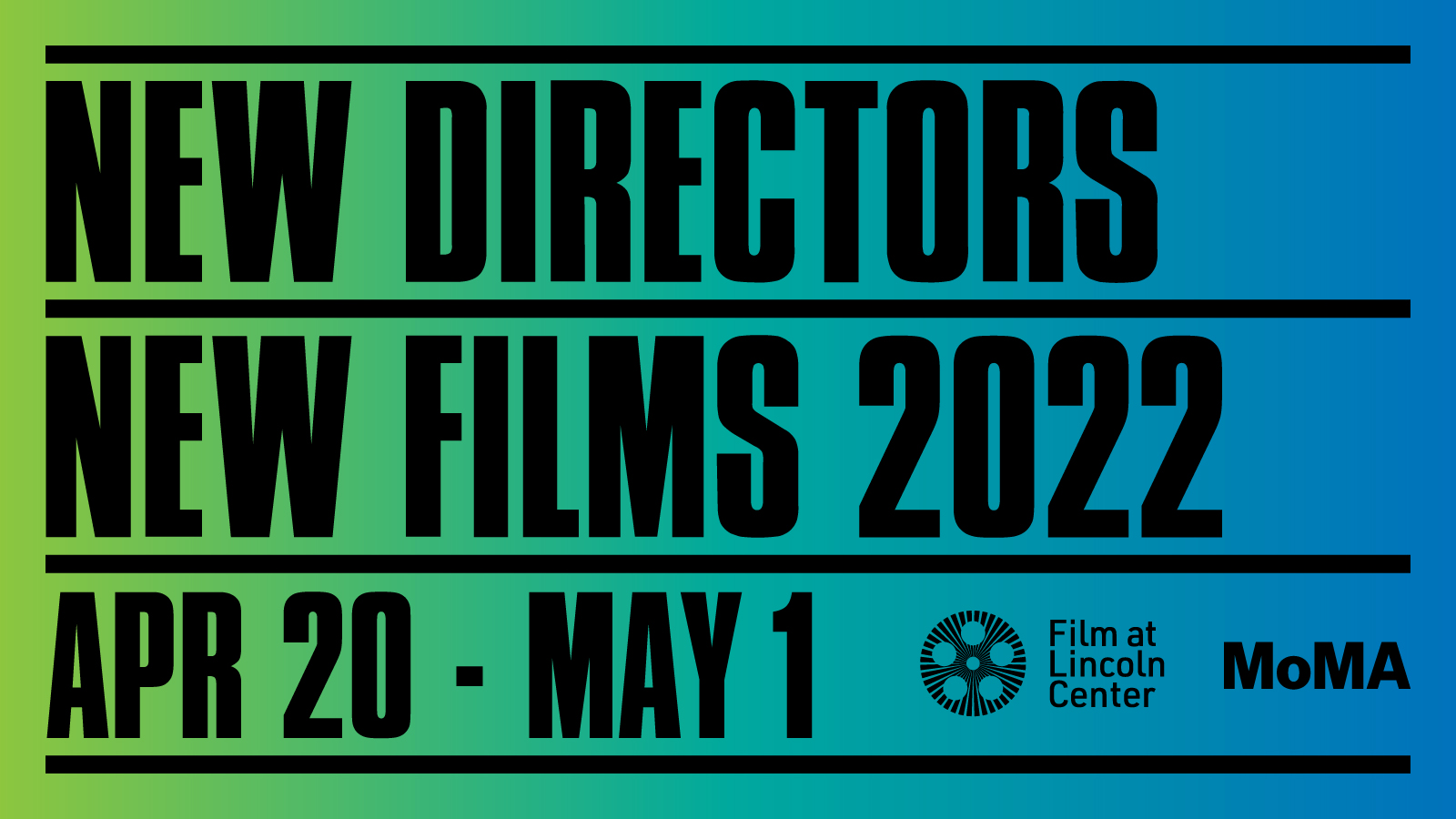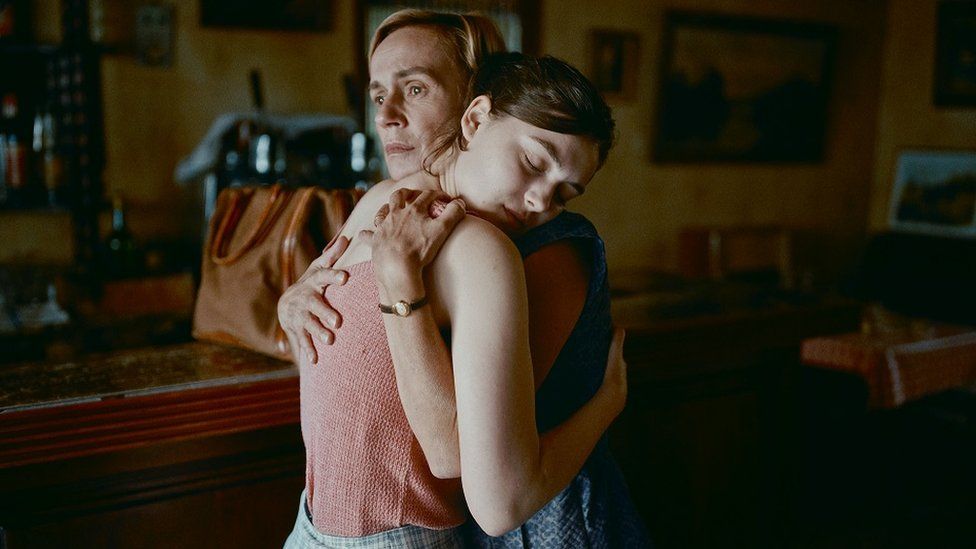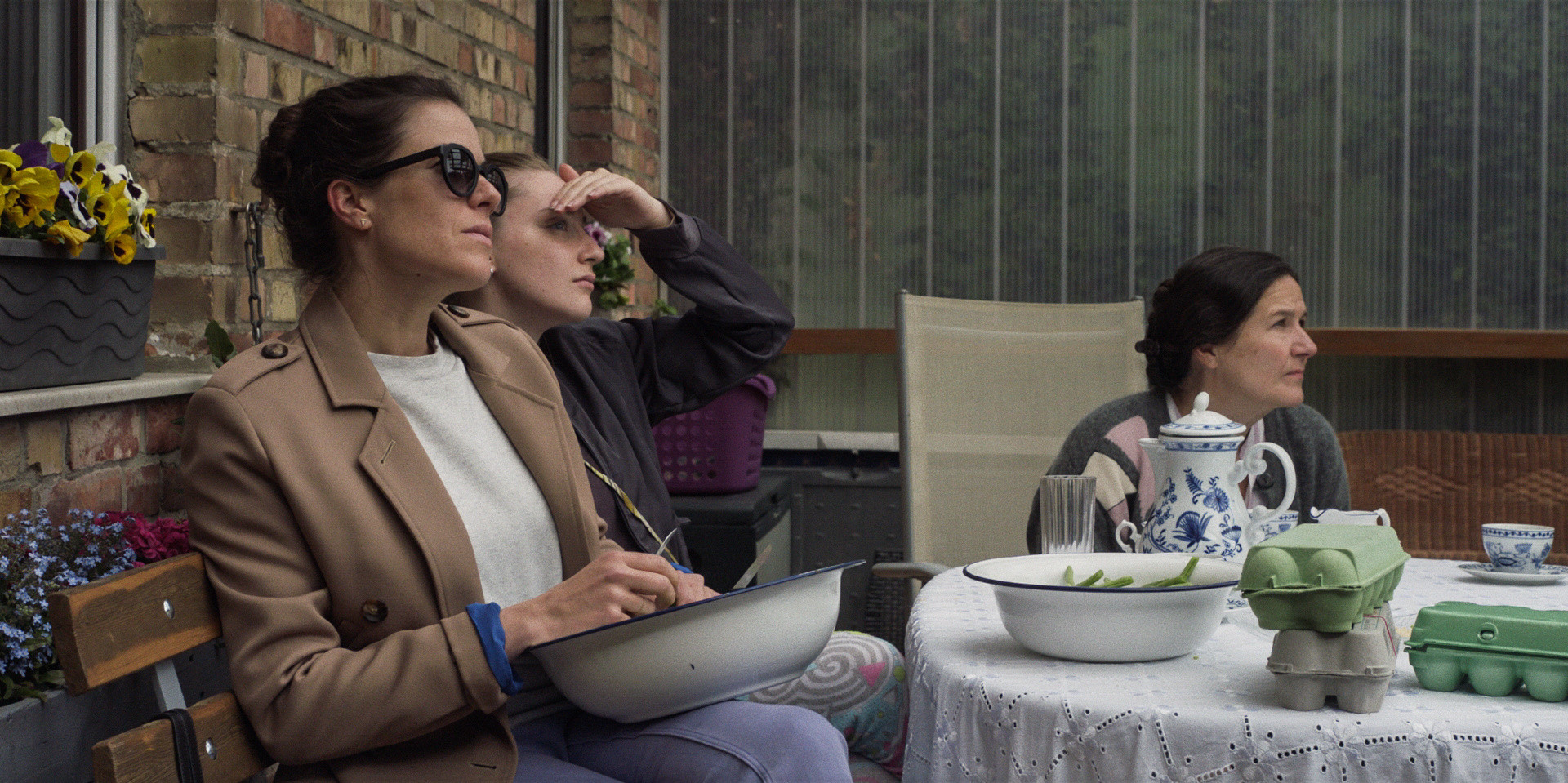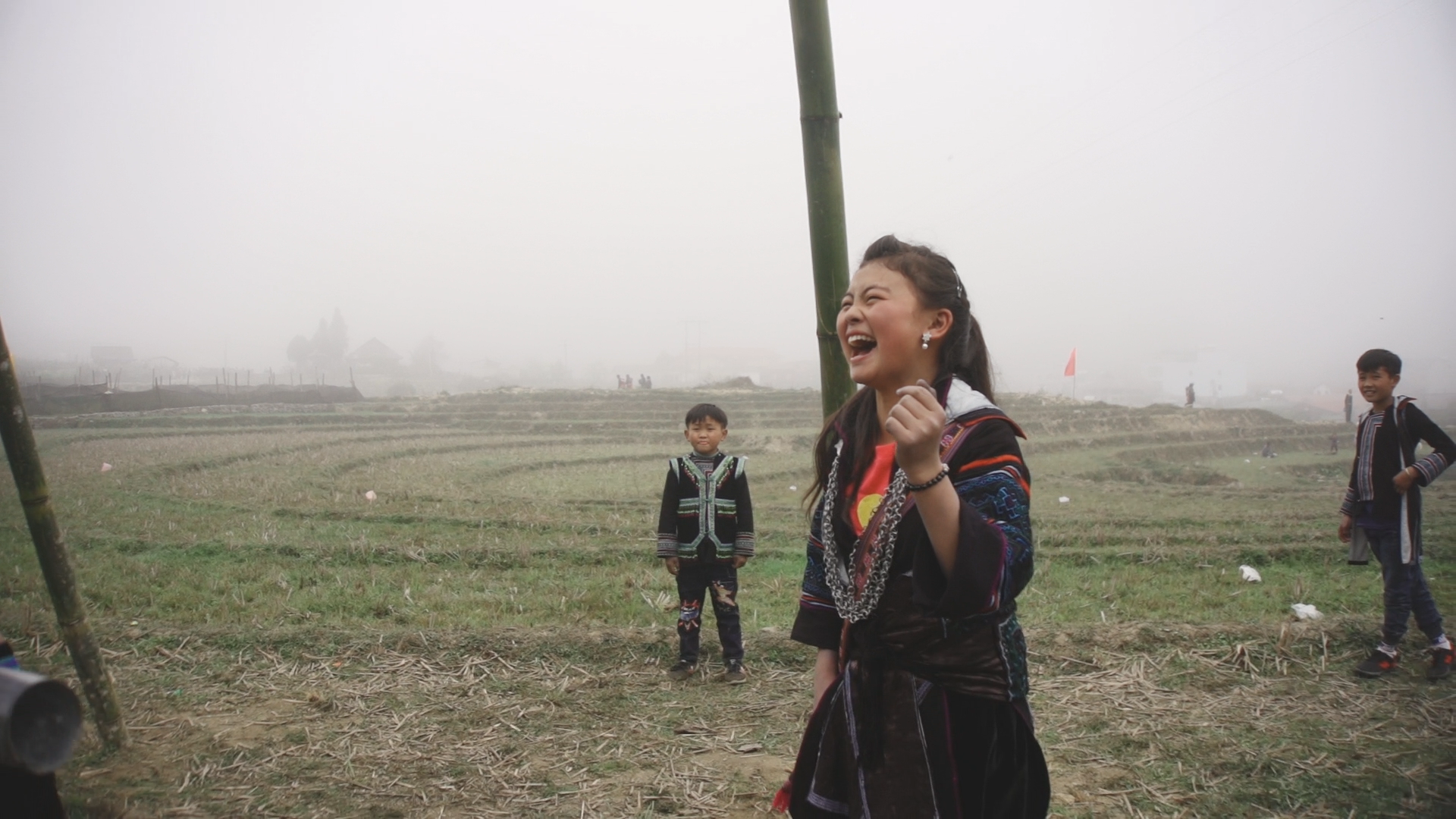|
|
||
|
Pro Tools
FILMFESTIVALS | 24/7 world wide coverageWelcome ! Enjoy the best of both worlds: Film & Festival News, exploring the best of the film festivals community. Launched in 1995, relentlessly connecting films to festivals, documenting and promoting festivals worldwide. Working on an upgrade soon. For collaboration, editorial contributions, or publicity, please send us an email here. User login |
New York: New Directors / New Films 2022
The 51st edition of New Directors/New films (ND/NF) was held at Film at Lincoln Center and The Museum of Modern Art venues from April 20 – May 1. ND/NF presented innovative productions by first time Avant Guard directors and guiding reflections by established filmmakers. As the program has consistently demonstrated over the past fifty years, the art form of cinema broadens our perception of society and our understanding of persistent socioeconomic problems in all their variations. The ND/NF selection included films from all corners of the globe and showcased outstanding award winning productions from festivals like the Berlinale, Sundance, and Venice. Over the last few years, more films by directors from South America have been selected for their perspectives on development issues. Essential has been the objective of introducing unknown creative film makers to educated audiences and distributors. Directors enhanced their profiles by having their work shown by ND/NF. Among them have been influential individuals. To name but a few, Wim Wenders, Steven Spielberg, Chantal Akerman, Wayne Wang, Spike Lee, Pedro Almodovar, Richard Linklater, Guillermo del Toto, Tsai Ming-Liang, Darren Aronofsky, Ramin Bahrani, Dee Rees, Benh Zeitlin, and Justin Simein. For the 2022 edition, 26 features and 11 shorts were introduced and screened in the FLC and MoMA theaters. The films were made by 39 directors with the number of female directors reaching 21. As the MoMA film curator La Frances Hui aptly noted, the 2022 program showed “Portrayals of individuals and communities navigating uncertain and turbulent circumstances in pursuit of freedom, self-determination, and survival. Together, these films reaffirm the creative power of cinema to see, critique, and inspire the way we live.” For her 2021 feature HAPPENING, Audrey Diwan received the Golden Lion Award at the 2021 Venice Film Festival. Based on an autobiographical novel by Annie Ernaux, Diwan and the co-writer Marcia Romano depict in a closely detailed realistic story set in France in the early sixties and the desperate struggle of a young student to secure an abortion. France sixty years ago was a conservative society with women’s roles and autonomy confined to strictly defined cultural and legal parameters. Sex for young women was a taboo in this puritanical society, but not for men. Pregnancies outside the confines of marriage were hardly accepted and their termination penalized with prison sentences for the women and anyone assisting them. Reinforced by prevalent Catholicism support for these strictures shared by most French from all groups, as well as the medical professions at the time, women’s rights and interpersonal gender relations were rigorously limited. Even talks about abortions were carefully avoided without ever using the term to preclude becoming isolated, shamed, and socially excluded. Anamaria Vartolomeo provides a compelling performance as Annie, an attractive 23 year old student living with fellow students in a dormitory. Annie faces a tremendous struggle after she decides to terminate her unwanted pregnancy. For Annie, becoming a mother and having an unwed status would mean an end her studies and plans to become a teacher. She does not want to trade her life for an unborn child. Through escalating obstacles, she resolves not to give up, even after the painful experience of two back alley abortions,
Diwan provides an honest, unsparing, and intimate account of Annie’s struggle. Her progressive social isolation, the enforced confinement required to maintain the secret, abandonment by friends and fellow students once they learn about her pregnancy, rejection of the termination by the father who abandons her, Annie’s fears and anxieties in coping with her unknown future, and the dreadful experience of having the pregnancy terminated by a back alley abortionist. HAPPENING is a difficult film to watch because the filmmaker makes no compromises in depicting Annie’s chronicle securing her emancipation from the enslaving rules of society.
TALKING ABOUT THE WEATHER (Alle reden uebers Wetter), Annika Pinske, 2022, Germany. Pinski elucidates through the communicative experiences of Clara, a doctoral philosophy candidate in social and professional settings, some basic fissures in contemporary German society. In Germany, there are the same fractures as in other postindustrial societies such as social class divisions, gender based behavior, and the growing importance of cognitive knowledge elites residing in higher education. Germany adds however an important divisive dimension, the culturally based contrast between the Ossis, East Germans who lived until unification in the former DDR, and the Wessis, individuals from West Germany. Pinske suggests that the consequences of one’s origin persist, though the German unification took place in n 1990 more than 30 years ago. The film’s title TALKING ABOUT THE WEATHER, at least in Germany, is a slightly derogatory reference to communications that have little or no content but dignifies in Pinske’s film the disconnection Clara is experiencing. Anika Pinske, who wrote the precisely articulated screenplay for the film, positions Clara in the sophisticated university milieu of Berlin; radically different from her East German working class background. For Pinske, Clara’s origin is formative in the insecurities Clara experiences and her quest to engage in meaningful communications avoiding talking about the weather. Teaching philosophy, she is attracted to complex issues but feels apart from colleagues interested in discussing her projects. Her attempts to communicate with her mother on a birthday party visit, with relatives, and with friends she grew up with in a provincial village were equally frustrating. She is still perceived as the smart girl that escaped. Her work does not prompt any questions and her intellectual concerns encounter an empty space. Some friends and relatives are apparently still rooted in the past and satisfied with redundant talks far beyond Clara’s demanding standards.
In her first feature documentary, CHILDREN OF THE MIST (2021), set in contemporary Vietnam, director and cinematographer Diem Ha Le contrasts the conflict prompted by established cultural community values and governmental stipulations that set a legal framework for marriages. The film elucidates the interpersonal problems of reconciling archaic family traditions in a rapidly modernizing society where young people have constant contact through social media and a secular educational system. Her production is set in a Hmong village in the mountains of North Vietnam and records the story of twelve years old Di and her social and family life over three years. The Hmong belong to an indigenous ethnic group of about 900,000 living with their families in small communities and surviving through agriculture and animal husbandry. Though sympathetic to Di, the filmmaker embraces a subdued ethnographic approach, leaving interpretations up to the viewer. The film documents a persistent feature of the Hmong tradition which determines for some young woman their transition to adulthood, an unusual matrimonial custom, bride kidnapping facilitated by the expectation that girls marry at a very young age. A would-be groom, with the help of his family and friends, abducts the girl. If her family cannot locate her, the kidnapping victim will be forced to marry the prospective groom. If she is found, both families can negotiate a solution. If a marriage takes place, the girl’s parents work out a payment or bounty from the other family. What is feared most is the disappearance of girls because of traffickers selling them in nearby China.
Di is an articulate attractive young girl, raised by her mother and rarely shown father. She helps with the farm work, has an active social life, and is attending school. She learns about her rights, though still steeped in the traditional Hmong life. Di is abducted by Vang, with full support from his family during the Lunar new year celebration, the bride-kidnapping season. Vang has dropped out of school, has no clear direction for his future, and cannot explain what motivated his abduction of Di. Di’s mother is ambivalent about the abduction. She was abducted too, a fate repeated by her other daughter La. La left school, and now at the age of 17, expects her second child. If Di were to leave, there will be no help for the mother because she and her husband are alcoholics. Her experience and traditional values condone the bride kidnapping, but she warns Di that Vang may turn out to be like his and her father, an alcoholic. The mother supports the enforced marriage of Di and pressures her husband to get money and many dowry gifts from Vang’s family. Though admitting to being immature, Di is in a better negotiating position because she knows the official rules and is supported by her teachers. When both families meet to solve the problem, Di argues that she has not reached the legal age for marriage and that full consent by the parents is required. The parents will be punished if they violate the laws. She also adds that for her marriage can only be considered after she graduates. No birth certificate can be issued if laws are broken. A second attempt to abduct her fails. Di tells Vang that she will never marry him, and he agrees to the breakup though his and Di’s family will lose face breaking the archaic tradition.
Claus Mueller, New York, filmexchange@gmail.com
18.05.2022 | Claus Mueller's blog Cat. : abortion audrey diwan bride kidnapping communication ddr Diem Han le New directors Vietnam
|
LinksThe Bulletin Board > The Bulletin Board Blog Following News Interview with IFTA Chairman (AFM)
Interview with Cannes Marche du Film Director
Filmfestivals.com dailies live coverage from > Live from India
Useful links for the indies: > Big files transfer
+ SUBSCRIBE to the weekly Newsletter Deals+ Special offers and discounts from filmfestivals.com Selected fun offers
> Bonus Casino
About Claus MuellerThe EditorUser contributions |





























